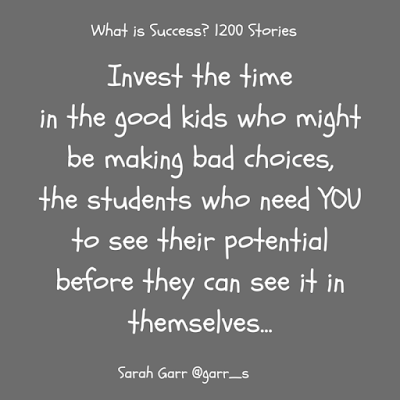If your students didn't have to be there, would you be teaching to an empty room?
I can distinctly remember that moment, and the thought that popped into my head. It was,"Oh crap." Because it forced me to be honest about what I was trying to achieve as a classroom teacher. Was I just trying to get by, to survive, to make my way through the never ending mountain of marking? Or was I trying to empower a generation of engaged and thoughtful global citizens?I was once again reminded of this challenge when reading The Innovator's Mindset, by George Couros. Couros suggests that in order to create the conditions for innovation and growth, we need to ask ourselves some essential questions, including-
Would I want to be a learner in my own classroom?
As someone who struggled in school myself, as a teacher, I challenged myself to create the learning conditions that would have kept me motivated, engaged and excited about learning. Even after 17 years in the classroom, I still found this a daunting task.
But again, the shift for me as a school administrator was that it's not only the students that I serve, it's the teachers. Dean Shareski closes his recent blog post, "Professional Learning is Messy" with this question-
How do you and your leadership create conditions and opportunities for you to listen?
Dean argues that some of the best professional learning results from opportunities to sit and listen, to hear from passionate individuals, the "smart people" who push us to actively engage with new thoughts and ideas. So like the "perfect storm", each of these elements have challenged me to extend George Couros' question to the following:
Would I want to be a teacher in my own school?
I'm not big on resolutions, and like most educators, my "new year" began in September. But as we move into 2016, I am resolved to help create the conditions in my school that would have inspired, motivated and supported me as a classroom teacher. I am resolved to serve the adults in the building with the same care and attention as I serve the students. No small task. I will make mistakes. It will likely be messy at times. But I also resolve to be as patient with my own learning, my own growth as I was with my students'. To be honest, for me, that's likely the bigger challenge.
I'll let you know how it goes...










































